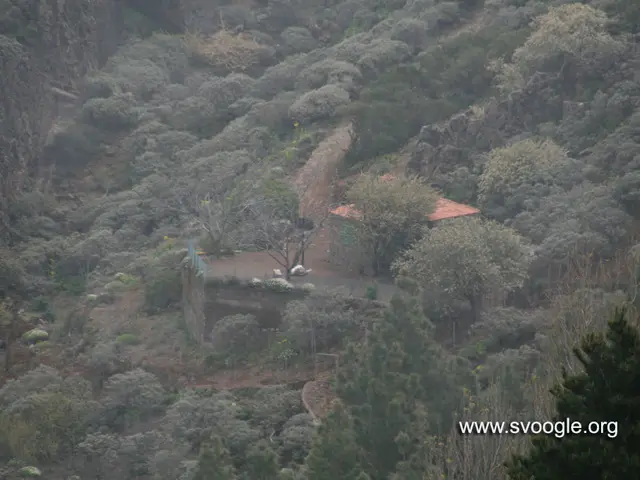Message from Germany's Federal Minister of Justice, Lars Klingbeil, during his visit to Lithuania - Foreign Minister for Foreign Affairs, Mr. Lars Klingbeil, delivers a message from Germany in Lithuania.
In a significant move, German Finance Minister Lars Klingbeil, currently in Vilnius, Lithuania, is reaffirming Germany’s commitment to Baltic security and defense cooperation. This visit, his first bilateral trip as Vice Chancellor and Finance Minister, underscores Germany’s view of the Baltic states as important partners and a priority for closer defense sector collaboration.
Klingbeil's agenda includes bilateral talks and a troop visit, with around 500 German soldiers expected to be stationed in Lithuania by the end of the year. This number is set to grow, as Germany plans to permanently station 4,800 soldiers and around 200 civilian employees in Lithuania by the end of 2027.
This expansion is part of the build-up of the Panzer Brigade 41, a significant entity for Lithuania and school material for many tenth-graders. However, the brigade is yet to become active. The German defense budget increase is intended to secure its establishment in Lithuania.
The deployment of the brigade represents a fundamental shift in NATO presence and Germany’s proactive defense role in the Baltics. This move sends a clear political and military message of solidarity and support amid European security challenges.
Lithuanian officials, including Finance Minister Rimantas Sadzius, have expressed strong support for increasing defense spending jointly with Germany and other Baltic states such as Latvia and Estonia. These efforts are seen as crucial steps to bolstering European security.
During his visit, Klingbeil will also be visiting the headquarters of the "Panzer Brigade 41" and then heading to Rukla, about an hour and a half away by car. The Minister's visit to Lithuania is a solidarity address and a matter close to his heart as a soldier's son from Munster.
Klingbeil's visit comes amidst numerous challenges, including the smoldering judges' dispute, the ominous US tariffs, and the increasing suffering in Gaza. Despite these challenges, Klingbeil emphasizes the importance of the security of the Baltic states to Germany.
The construction of barracks for the soldiers is being handled by Lithuanian contractors, with progress reported to be swift. This deployment is considered a significant enhancement of NATO’s and Germany’s military presence in the Baltic region, reflecting Germany’s commitment to strengthening NATO goals and deterring aggression.
In summary:
- Klingbeil's visit to Lithuania is to reaffirm Germany’s commitment to Baltic security, strengthen defense cooperation with Lithuania and Baltic states, and support NATO goals.
- The deployment of the Panzer Brigade 41 represents a fundamental shift in NATO presence and Germany’s proactive defense role in the Baltics.
- Germany plans to permanently station 4,800 soldiers and around 200 civilian employees in Lithuania by the end of 2027.
- This deployment sends a clear political and military message of solidarity and support amid European security challenges.
- Lithuanian officials have expressed strong support for increasing defense spending jointly with Germany and other Baltic states.
In line with his first bilateral trip as Vice Chancellor and Finance Minister, Klingbeil has a schedule that includes discussions and visits related to the deployment of the Panzer Brigade 41, which is set to be a significant entity in Lithuania, marking a substantial enhancement of NATO’s and Germany’s military presence in the Baltic region. The Commission has also adopted a proposal for a Council Regulation on the budgeting to secure the establishment of the brigade in Lithuania. The expansion of troops, with approximately 4,800 soldiers and 200 civilian employees to be stationed in Lithuania by 2027, is not only a fundamental shift in NATO presence but also a clear political and military message of solidarity amid European security challenges. Concurrently, Lithuanian officials have voiced their strong support for elevated defense spending in collaboration with Germany and other Baltic states, viewing these efforts as vital for bolstering European security.







